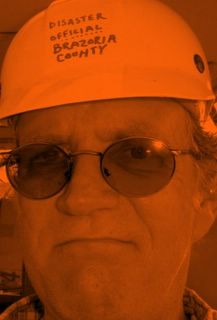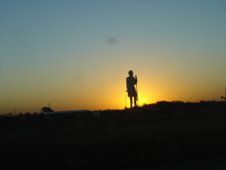Hunter Thompson, cont'd

Jon Friedman gives us more on the life of Hunter Thompson in Marketwatch, an online site where you wouldn't necessarily expect it, but that source also gave us Larry Kramer's first-day thoughts, which were as solid as anyone else's, except maybe Tom Wolfe's in yesterday's WSJ.
Abe Peck, who teaches journalism at Northwestern University, said, "Just as you had this new generation of war correspondents, Hunter did that for the culture war at home. He was a reporter but had been marinated in psychedelic surrealism. He wasn't afraid to shine a flashlight into the basement of American politics and culture."
(snip)
After the legendary music journalist Ralph J. Gleason, Wenner's original partner at Rolling Stone, died in 1975, Wenner continued to list Gleason on the magazine's masthead. It was a noble and appropriate gesture, underscoring the man's importance. And it would be fitting if Wenner gave Thompson the same treatment and respect.
(snip)
Thompson projected a world-weary hope, though. He began his landmark book "Fear and Loathing on the Campaign Trail" with the ironic line: "Is this trip really necessary?" That was because Richard Nixon's re-election over George McGovern seemed like such a slam dunk.
That Thompson could find drama and humor in such a dreary campaign - remember, these were the days before Nixon's Watergate scandal became a national obsession - was a major journalistic accomplishment in itself.
(snip)
If there was an unfortunate aspect to his career, it was that Thompson often threatened to become a prisoner of his public image and a caricature of The Wild Man.
"He lived longer than any of us expected already," Rolling Stone's Wenner said.
Thompson sometimes appeared to be the journalistic version of John Belushi's Bluto in "Animal House." He seemed to want to keep topping his own outrageous stunts.
"When you have a high-wire act," said Northwestern's Peck, "sometimes you fall off."
Friedman alluded to Timothy Crouse's book, "The Boys on the Bus," but I didn't quote that part. It's a good book to read about the political press back in the '70s and includes some good stuff on Thompson.
(More to come if anything noteworthy surfaces)
[marketwatch]
Suicide pre-planned, declining health blamed
Douglas Brinkley, the historian who edited Hunter Thompson's collected letters, says the late journalist was in declining health and wanted to leave this mortal coil on his own terms.
The family is trying to accommodate Thompson's wish that his cremains be shot out of a cannon on the grounds of his fortified compound in Woody Creek.
"I think he made a conscious decision that he had an incredible run of 67 years, lived the way he wanted to, and wasn't going to suffer the indignities of old age," Brinkley said. "He was not going to let anybody dictate how he was going to die."[ap]
Thompson had spent an intimate weekend with his son, daughter-in-law and young grandson, the spokesman said.
"He was trying to really bond and be close to the family" before his suicide, Brinkley said. "This was not just an act of irrationality. It was a very pre-planned act."














No comments:
Post a Comment